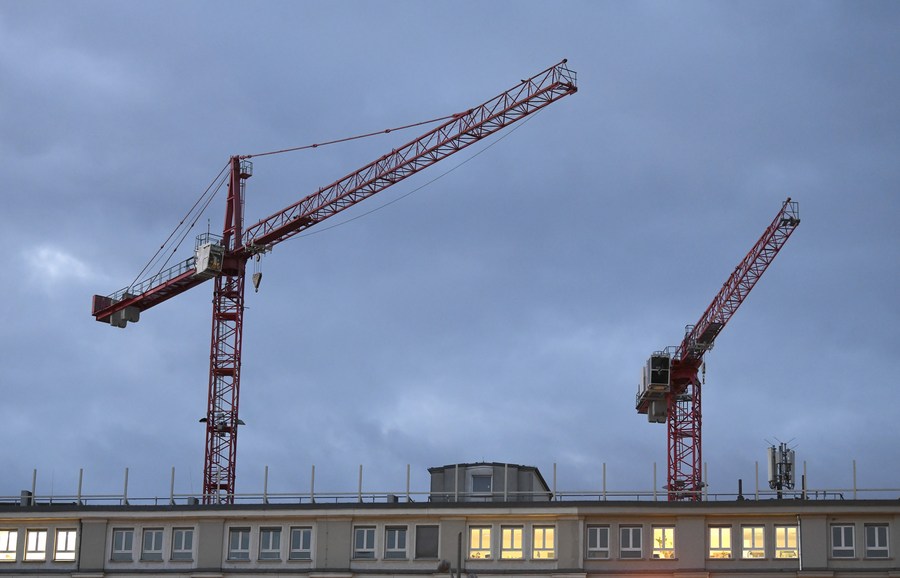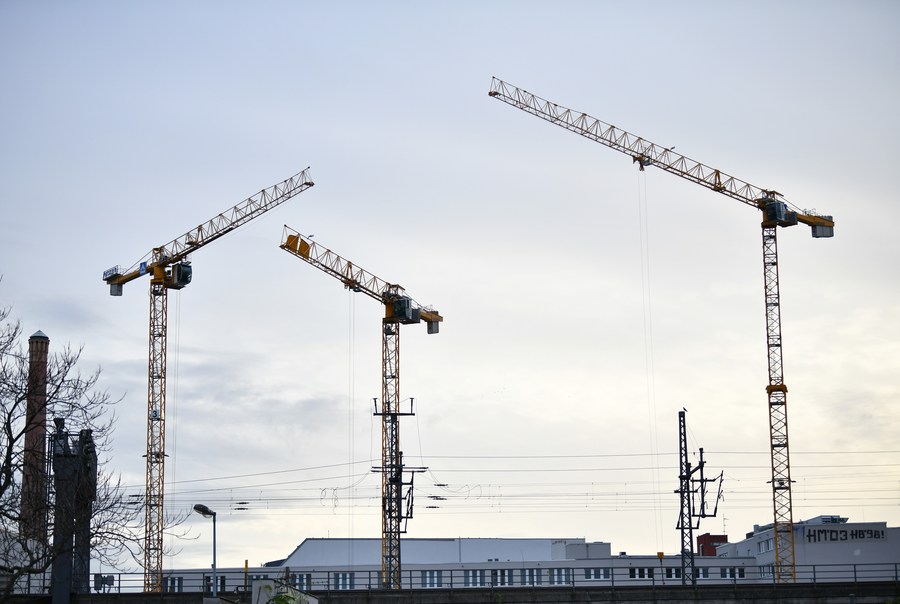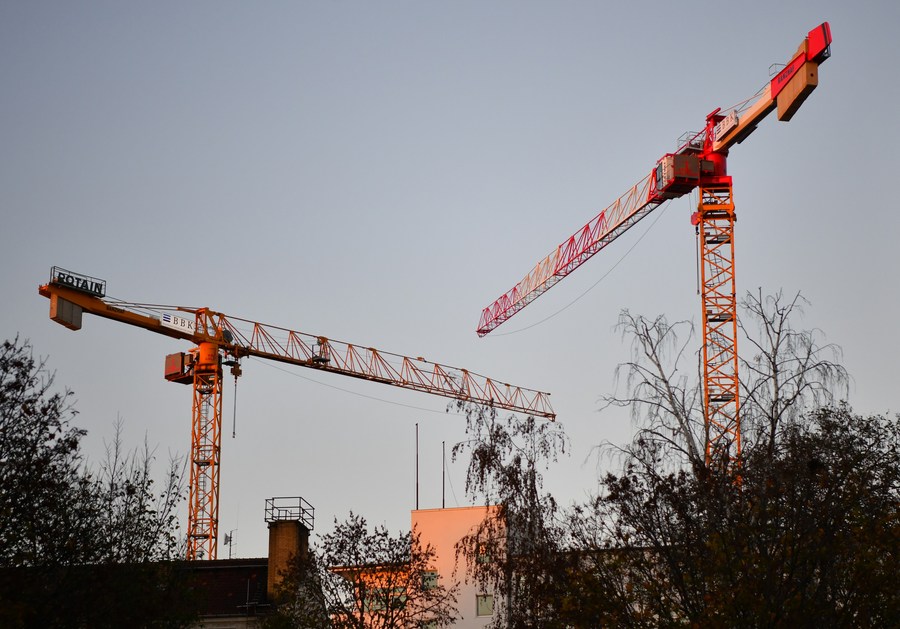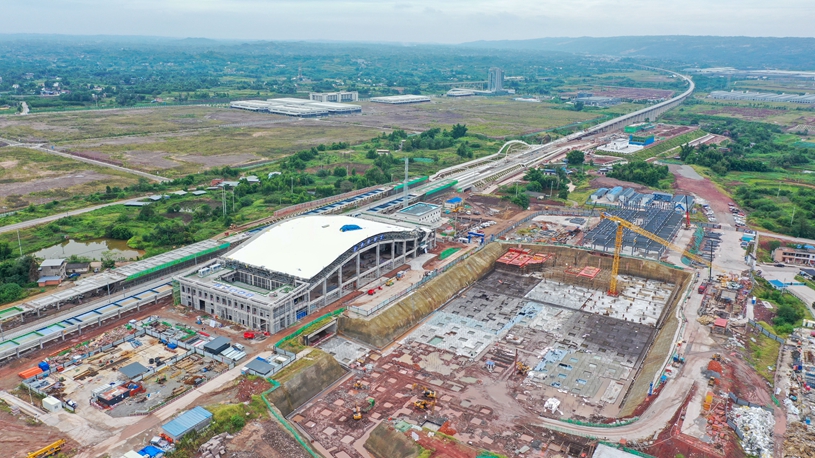
This photo taken on Jan. 13, 2023 shows tower cranes at a construction site in Berlin, Germany. (Xinhua/Ren Pengfei)
Year-on-year prices have dropped significantly in both urban and rural areas, with the biggest fall seen in cities where prices had risen particularly strongly in the past decade.
BERLIN, Sept. 23 (Xinhua) -- Residential property prices in Germany fell 9.9 percent in the second quarter (Q2) of 2023, the sharpest year-on-year decrease since 2000, when the monitoring of housing prices began, the Federal Statistical Office (Destatis) said Friday.
The downward trend began a year ago with rising interest rates and growing inflation, putting an end to a long period of cheap financing that previously galvanized the property sector in Germany, according to Destatis.
Year-on-year prices have dropped significantly in both urban and rural areas, with the biggest fall seen in cities where prices had risen particularly strongly in the past decade.
In the top 7 metropolitan areas, including Berlin, Hamburg and Munich, prices for owner-occupied apartments in Q2 fell 9.8 percent year-on-year, while single and two-family houses were 12.6 percent cheaper than a year ago.

Photo taken on Nov. 7, 2022 shows tower cranes at a construction site in Berlin, Germany. (Xinhua/Ren Pengfei)
Deutsche Bundesbank warned in its August monthly report that the "dramatic rise in inflation rates and financing costs in 2022 hit the German residential real estate market at a time when it had been overvalued for some time."
The bank believes that residential properties were overvalued by between 20 and 30 percent in 2022. "Evidence that overvaluations persist could potentially mean further -- possibly significant -- price corrections," Deutsche Bundesbank said.
Although property prices are falling, Europe's largest economy is facing a serious housing crisis. From January to July, the number of building permits for apartments plummeted by 27.8 percent compared to the same period last year, according to official figures published earlier this week.
Furthermore, 20.7 percent of residential developers reported cancelled projects in August, according to an industry survey published by the ifo Institute in mid-September.
"As a result of the rapid rise in construction costs and much higher interest rates, many projects that were still profitable in early 2022 are now no longer viable," said Klaus Wohlrabe, head of surveys at ifo.

Photo taken on Nov. 6, 2022 shows tower cranes at a construction site in Berlin, Germany. (Xinhua/Ren Pengfei)
The current crisis in the construction and housing industry will be the central topic at next Monday's housing summit, which will be attended by German Chancellor Olaf Scholz. ■












